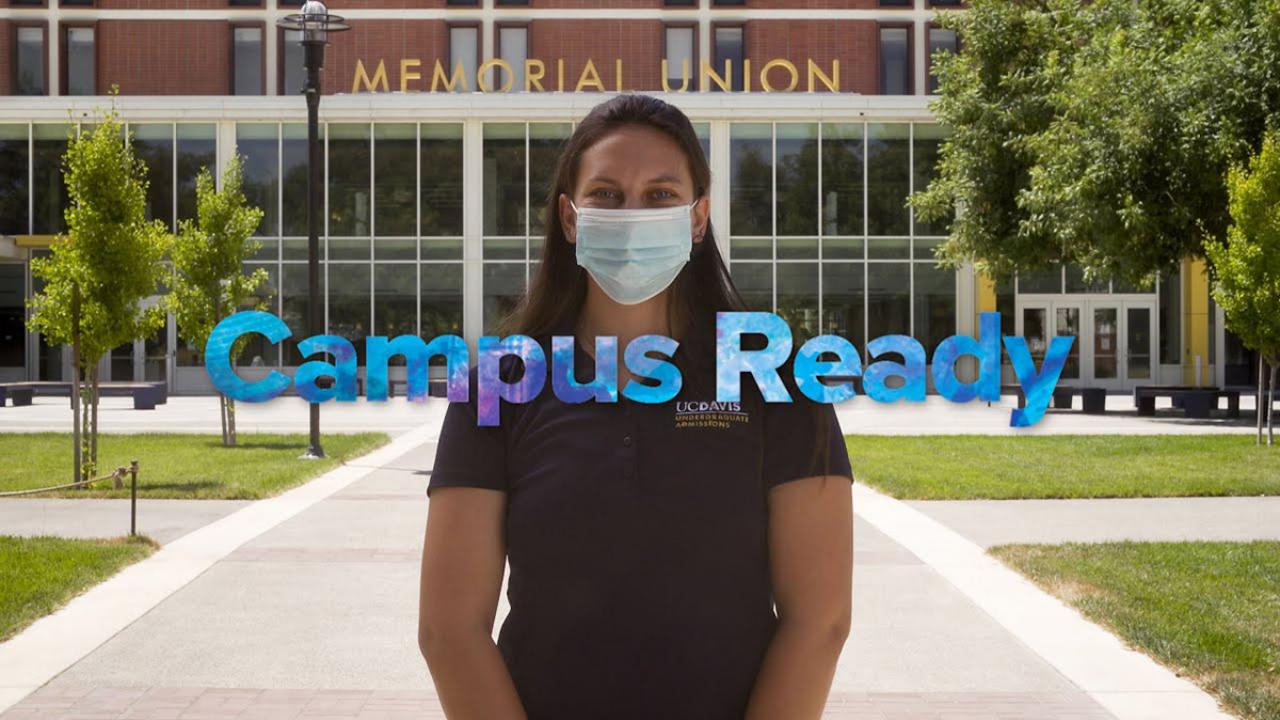Quick Summary
- Survey indicates 11,000 students are already living in or near Davis, and 13,000 or so are still coming
- Campus and city are developing a unified public health effort beyond “campus boundaries” to prevent the spread of COVID-19
- Readiness includes screening, testing, contact tracing, flu shot clinics and Daily Symptom Survey
In the coming weeks, students will be gradually returning to the Davis area. To help provide insight into the size of this population, UC Davis recently conducted a survey about where students plan to reside for the fall quarter.
The survey indicated that in addition to about 11,000 students who have already been in the area, other students are planning to be here, too. In total, approximately 50 percent of undergraduate students and 70 percent of graduate students are planning to live in Davis and its surrounding communities, including on- and off-campus housing. It is estimated those percentages represent a range of 23,000 to 25,000 students.
Culture of care
To help promote ways to care for ourselves and one another this fall, the university has distributed a series of messages from Chancellor Gary S. May, UC Davis Health and the Division of Student Affairs underscoring the important role we all have in protecting the health and well-being of our community by following public health directives and campus policies and adopting a thoughtful, responsible and responsive approach.
As a university town, UC Davis and the city of Davis also recognized the need for a unified public health effort beyond “campus boundaries” to prevent the spread of COVID-19, so that the local and Aggie communities can thrive together.
University and city leadership have been working together on the various components of that effort, one of which is to facilitate a coordinated and gradual reintegration of approximately 13,000 UC Davis students back into the Davis community.
In his Sept. 4 letter to the UC Davis community, Chancellor May reminded people to wear face coverings inside and outside where other people are likely to be around, maintain at least 6 feet of distance from other people, wash their hands frequently — and emphasized: “We should do these things whether we are on campus or out in the community, OUR community.”
An announcement about the campus-city project and its initiatives will be released in mid-September.
‘Campus Ready’ in action
The campus has been preparing for months for the gradual return of students, working closely under the guidance of county and state health officials, and will be implementing protocols as outlined in the Campus Ready Plan. Some of those efforts that begin next week include:
• Screening, testing and contact tracing — The move-in process for students will be staggered over multiple days and begin with the Green at West Village next Tuesday, Sept. 15, and then residence halls and student housing apartments the following week.
The campus plans to start the pilot program for the saliva-based COVID-19 screening process with students in the residence halls, followed by a phased implementation for all students and other campus affiliates.
UC Davis will also conduct contact tracing for people who are found to be positive for COVID-19. A team overseen by Student Health and Counseling Services, in partnership with Yolo County Public Health, will help identify individuals who may have been exposed to COVID-19. All members of the community are expected to participate in the contact tracing process. The student health team of trained personnel will focus on campus contacts, while Yolo County Public Health will focus on off-campus contacts.
As the campus tests students and other campus affiliates for COVID-19, it expects the number of people in the community who test positive will increase. In preparation for this eventuality, the campus is setting aside isolation and quarantine facilities. UC Davis also has worked with local housing complex owners to assist them in establishing isolation/quarantine space within their properties.
Directives for UC Davis students to isolate or quarantine will be provided by Student Health and Counseling Services in consultation with Yolo County Public Health, including students who live off campus if they do not have appropriate options at their primary residence.
Student health staff will notify and consult with each individual for health care, symptom monitoring and contact tracing. UC Davis also requires employees and students to report any confirmed positive COVID-19 test result or a COVID-positive diagnosis from a physician for themselves or anyone in their households.
• Flu shot clinics — The University of California has announced that all students, faculty and staff living, learning or working at any UC location must receive a flu vaccine this fall. The deadline for vaccination or submitting a medical exemption is Nov. 1. Flu shot clinics on campus will begin Monday (Sept. 14), offering vaccinations at no cost for students, staff and academics who are unable to access flu vaccines through their health insurance.
Daily Symptom Survey
All students, staff and faculty are now required to complete the Daily Symptom Survey and need to be “approved” to gain access to locations or receive services on campus. If a campus affiliate does not attain “approved” status after taking the symptom survey, they will be asked to stay home, shelter in place and contact Student Health and Counseling Services if they are a student, or their supervisor and health provider if they are an employee.
The “Campus Ready” website details the university’s efforts to mitigate the spread of COVID-19.
Media Resources
News and Media Relations, 530-752-1930
